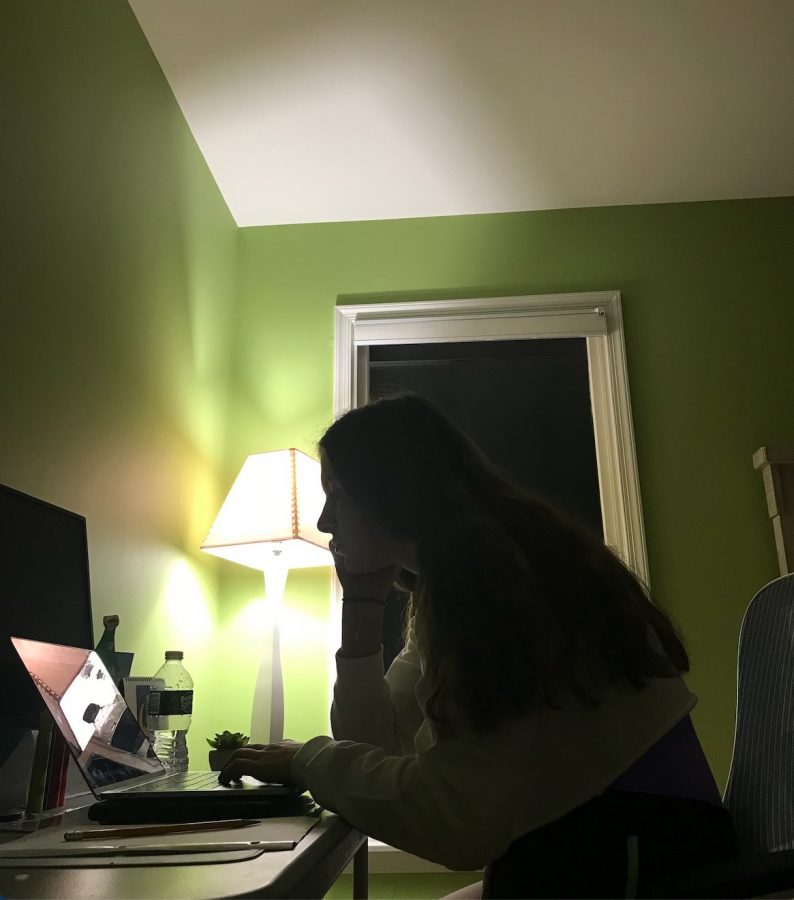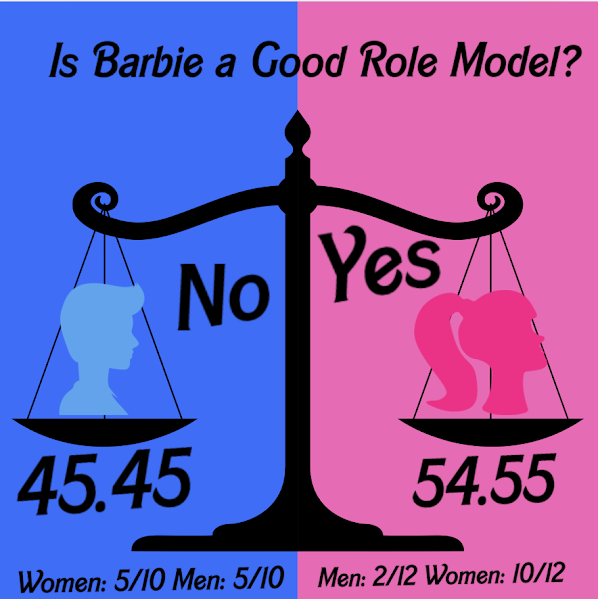Honors Students Stressed By Schedule, Homework
“All Work No Play”
(Photo courtesy of Nora Stashefski)
Many students, such as this teen, find themselves struggling to keep up with the amount of academic work that teachers are assigning during the pandemic. Students often find themselves working late into the night
COVID-19 has brought on stress for all students, but Honors students have dealt with the most anxiety. The pressure they feel comes from the fact that Honors students, along with Advanced Placement students, have always been, and will continue to be, assigned the most work.
This fact is highlighted in a recent newspaper poll by The Streak of 143 underclassmen Honors students at Warren Hills Regional High School. The poll reveals that Honors students feel they have been overwhelmed with school work that cuts into their free time and sleeping hours.
When all Warren Hills Regional High School students were attending nearly six hours of daily classes in the building, until COVID-19 forced schedule changes starting in mid-March last year, school days were longer. This meant there was more time in class, and students were able to complete assigned work during school hours.
Now, thanks to COVID-19, students have only four hours of classes a day under remote and hybrid schedules. School administrators and teachers may feel like students aren’t learning as much due to less time in class, so to make up for lost learning time, they assign more work in hopes that students learn from it.
For Honors students, this is a lot of work, since Honors classes assign more work than general Level 1 or College Prep Level 2 classes.
While administrators and teachers mean well, the additional work they are assigning doesn’t actually help students learn, according to 79.7% of 143 underclassmen Honors students surveyed.
The additional work doesn’t help students learn, so many Honors students agree that it isn’t necessary.
“I think we should do less things that are time consuming and that really don’t help us learn much,” said Honors student Owen Heine, a freshman.
Besides not helping Honors students learn, busy work eats into free time and causes students to lose sleep.
“I feel the extra homework takes away from my time to relax, because I work from the end of school to 5:00 p.m., then from 5:30 p.m. to 7 p.m.,” said Honors student Jacob Adams, a freshman.
Of the surveyed Honors students, 73.4% said they have lost sleep over homework, and on a different question, 57.3% said they get only five to six hours of sleep each night.
Teenagers in between 13 and 18 years of age should be getting eight to ten hours of sleep each night, according to the Centers for Disease Control. If school work is reducing underclassmen Honors students’ sleep so drastically, obviously the hours spent on homework are in need of a huge reduction.
Ninety-eight percent of sophomores say that they feel like they are receiving too much work in their Honors classes. When asked how many hours they spend on homework each week, many of them responded with answers such as “too many to count.”
Although it varies based on the number of Honors classes they take, most agree that they are getting much more work than they can handle, and that it takes much longer than their teachers say it should.
“I would say 70% of my life is work now,” said sophomore Emilie McGrory. “It’s a never-ending cycle and I feel like I have no free time. If I’m lucky and I do, it’s wasted because I have no motivation to do anything after working that long.”
Many students agreed, saying that all of their free time is spent doing homework, even on weekends and holidays.
National news reports indicate that students from all around the country feel the same way, and many find themselves spending all of their free time on computer screens.
Most, however, do not blame their teachers for assigning excess work. The general consensus in the country is that COVID-19 has been incredibly tolling on everyone. So, many students agree with one another that they can’t place the blame on anyone in particular.
Anyone logging onto a social media site will discover countless posts from 2020 and 2021 of students complaining about the amount of work that they get.
The voices of students cry out all over the country, saying basically the same thing about remote learning and its difficulties, and no one could say it better than one sophomore student who asked not to be identified: “There is just a lot going on, and when a kid sees that they get 120-plus notifications from Google Classroom and Gmail, it’s a little sad.”






